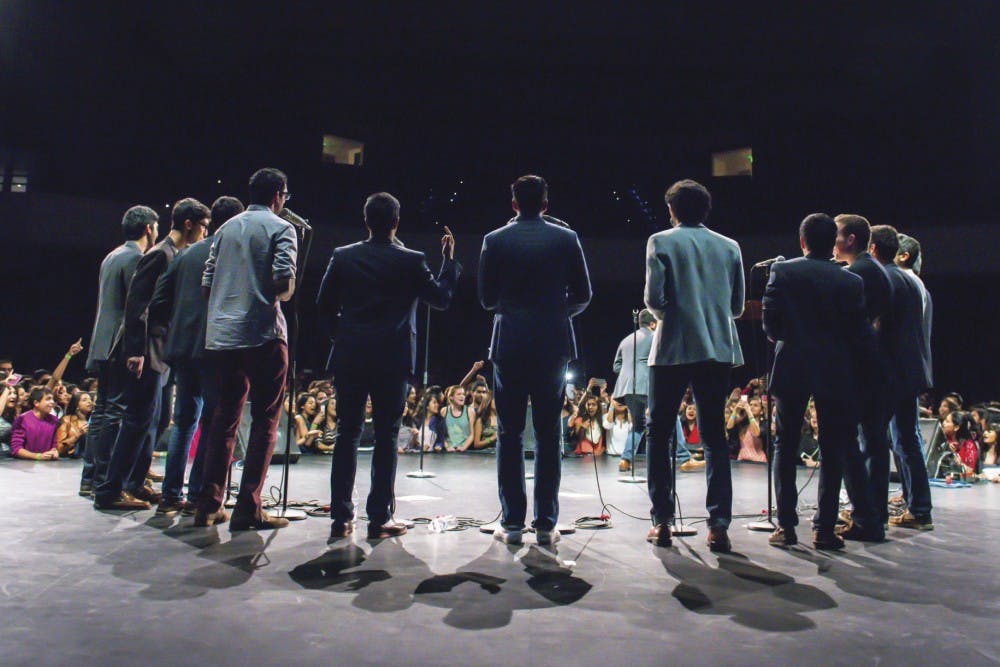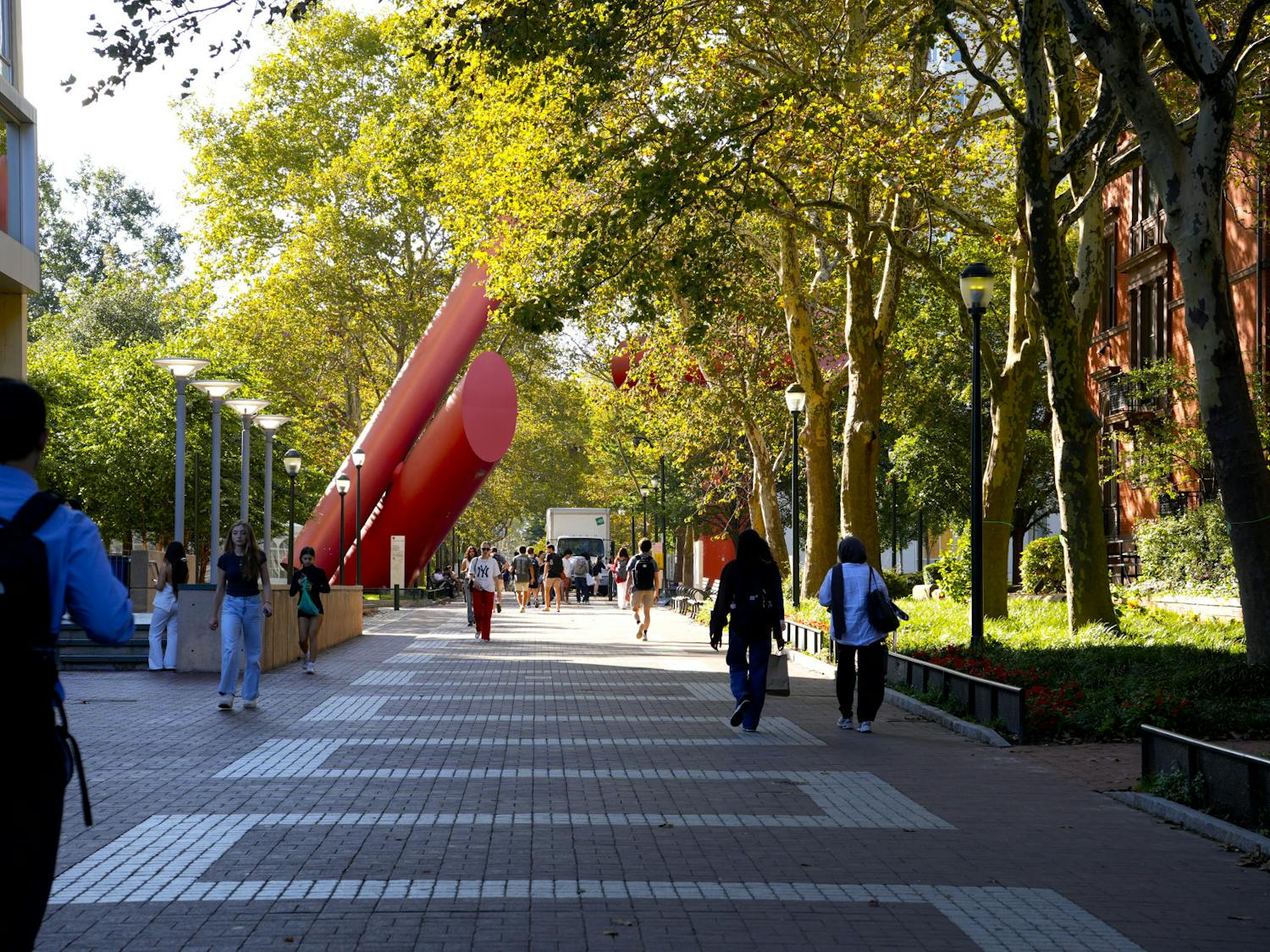Since the audition form for South Asian a cappella group Penn Masala was publicized last week for including a question asking applicants to name the five hottest girls at Penn, the group has apologized for their actions and is working to combat sexist culture on campus.
“We sincerely apologize for this question. It shouldn’t have ever been on the sheet in the first place,” Wharton senior and Masala president Hari Ravi said. “We fully understand how asking a question to freshmen like this impresses upon them, as they come in [to Penn], a culture of objectifying women and perpetuating misogyny.”
Since the club reprints the same form each year, members did not know how long the question had been present, but applicants to the group as far back as 2013 remember the question. After the first day of auditions this year, the group removed the question.
“Last Sunday we printed out the form like we do every year and we realized this question is off ... it objectifies women and it isn’t something we should have on our form,” Ravi said. “It reflects nothing about why we take men into our group for that matter or what we look for at all. So we actually had a discussion on Sunday night right after auditions, and we decided to take the question off.”
Masala has already addressed the issue within the South Asian community and is working on extending the discussion to the Penn community at large. They issued an apology through The Daily Pennsylvanian and are reaching out to the performing arts community as well.
College senior and South Asia Society Board President Rich Chaudhary said that he was very pleased with how Masala had handled the situation. Masala is one of the nine constituent performing arts groups of the South Asia Society, though Chaudhary said that the handling of applications for each group is handled internally.
"I think they responded completely appropriately. It shows how mature and responsible they are as a group and shows how much they care about the community as a whole," Chaudhary said.
“It is really easy for someone to react and say we have to solve this issue ASAP and issue an apology for damage control, but we wanted to take some time to reflect and talk to effective parties and really understand why what we did was wrong and what people were hurt about and take that time to reflect and understand and learn before we issued an apology,” Ravi said.
Last week, they posted in a GroupMe for the South Asian community to discuss the situation and to issue a formal apology. The first person to respond was Wharton senior Ashna Vijay Bhatia, who was on the South Asia Society board for three years and is the current organizer of the South Asian Women’s Space. Bhatia spoke on behalf of other South Asian women who did not feel comfortable voicing criticism.
“This being wrong is not an opinion. It is wrong,” Bhatia said. “[They need to] understand why it is wrong and be open about the fact that they did something wrong. This was a question someone made I don’t know how many years ago but no one questioned it. And that is the biggest problem.”
Bhatia said that the question made her question members’ commitment to gender equality in general.
“The reason why it hurt is because they very much present themselves as allies,” Bhatia said. “Most of them have been through APALI, which is the Asian Pacific American Leadership Initiative where we discuss things like race and gender. And then they post things for International Women’s Day ... That is why I was really disappointed [since] they vocally support women through their marketing efforts, but then this happens on an internal basis.”
Bhatia was also critical of past alumni of the group, who reached out to apologize for the question. “[It’s awesome but] even then those previous presidents have been through the same type of training and have voiced out how dedicated they are to the mission of gender equity, and then to not see them make a change is like, ‘Did you really believe that in the first place?’”
Bhatia and Ravi hope that this situation can create change in many groups across campus, not just Masala.
Bhatia said, “I think misogyny, racism, sexism is a part of every group, but I think what is important is that we all make initiatives to break away from that history. It is moments like this when I hope that all of these groups take this as a moment to reflect and [ask] ‘Do our traditions align with what we want to be seen as on campus? Do they align with what we believe in?’ And I really hope this pushes them to do that.”
Masala is working with the Penn Women’s Center, The Pan-Asian American Community House and the Performing Arts Council to guide their approach to the situation and to help spread awareness about sexism on campus. In addition, the South Asian Society will host a forum on Friday at 5:30 p.m. to discuss sexist culture on Penn’s campus and specifically in the South Asian community.
Chaudhary said that in addition to their work with administrators and other campus leaders, Masala members have also reached out individually to women within the South Asian community to ask them about their feelings on the question and to apologize.
He also stressed the importance of reaching underclassmen at the forum. "It's really important to engage with the younger classes because they will be the future leaders of this community and the change really can start with them," he said.
“It can get kind of uncomfortable to even admit [it] but we ask people to lean into that discomfort and use it as a means to spark change within communities. Use this as an educational point and as a wake up call. We need to make sure we are making Penn as welcoming and as comfortable a place as we’d all like it to be,” Ravi said.
“I think they have handled it better than I thought they would and I think that they are really taking this as an opportunity to grow,” Bhatia said. “They are really starting to have those conversations and I am intrigued to see how this will bring about change.”









